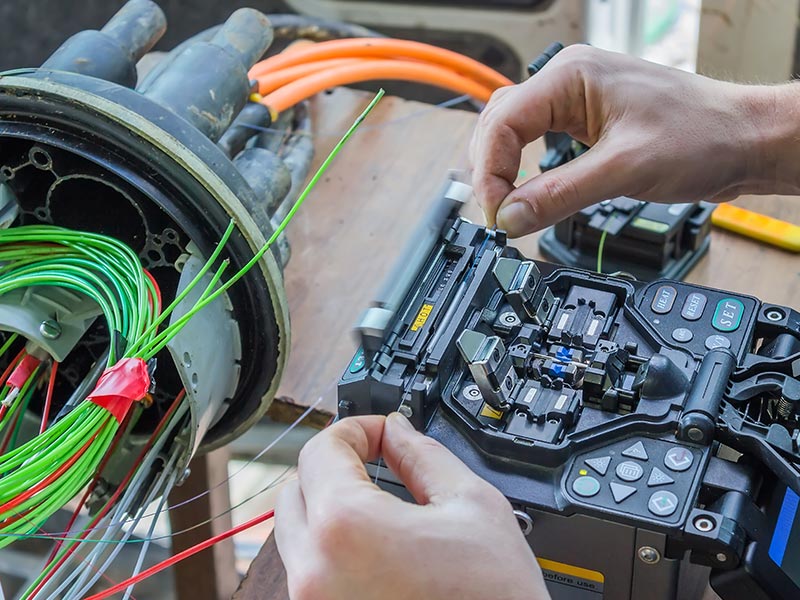The Advantages of Fiber Will Make You Reconsider Your Network
You’ve heard of fiber’s lightning-fast speeds. It’s become the go-to selling point whenever discussing fiber-optic cables. That’s led to an increase in popularity over copper-wire networks, and more office buildings are now fiber-ready to prevent company network slowdowns.
While speed is great, especially in an increasingly data-hungry culture, here are some of the other benefits fiber offers businesses in need of a scalable solution.
Cost-Effective
Fiber costs less. How? Here’s where speed is crucial. Companies can lose thousands of dollars a year due to unreliable or slow networks. Zero downtime means more productivity. And to keep your teams productive, fiber also supports cloud-hosted storage and VoIP, which can keep multisite offices and mobile employees working together. Flexibility like that helps companies continue to work without interruption on a network that can easily scale with a business as it grows.
Additionally, it takes less equipment, with little overall maintenance and installation time, to get a fiber network up and running. Compared to other connectivity options, broadband fiber has long been considered a cost-saving solution.
Secure
The sharing of big data means there’s the opportunity for bigger data leaks. Keeping data secure is a priority for any enterprise with more than one location, or mobile employees. Fiber cables are built to let you know if they’ve been compromised. Really. Fiber cables don’t emit signals like wireless connections or copper lines, which makes them difficult to tap. You’d need to cut the cables to gain access to them and the data they’re sharing. If there is a security breach, the entire system—electronics and hardware often housed in one central location—will fail instantly.
Reliable
Fiber cables don’t fall victim to the same problems, like weather, as copper metal wires do, and they’re more resilient to electrical or human interference. Additionally, while signals over copper degrade the farther they are from the switch, fiber signals don’t degrade as quickly over longer distances. It’s incredibly useful for enterprise companies in buildings with larger floorplans, or for cross-town offices. Reduced latency leads to better voice quality while using VoIP features, and improves employee collaboration across locations.
Bandwidth
Everyone talks about it because everyone needs it. With traditional network connections, it’s easy for businesses to hit a data transmission cap. Not with fiber. Fiber-optic cables offer more bandwidth without sacrificing speed or high-demand features like SIP trunking, video and web conferencing, file and data sharing, and cloud-hosted applications.
We’ve only scratched the surface of a fiber-optic network’s benefits. And if your business is still relying on outdated network technology, you’re doing yourself a disservice. But an ISP like Frontier Business might be able to help. We have fiber solutions that fit your business’s size and needs. And chances are your office building is already fiber-ready. Ready to find out if it is, or to see how a fiber network helps businesses grow? Let’s talk.
SOURCES:
https://www.increasebroadbandspeed.co.uk/reasons-superfast-broadband
https://business.frontier.com/enterprise/voip
https://www.networkworld.com/article/2301771/lan-wan/fiber-now-less-expensive-broadband-than-cable–report.html
http://www.relcominc.com/pdf/relcomifoguide.pdf
https://www.networkworld.com/article/3252848/internet/internet-slowdowns-might-become-a-thing-of-the-past.html
https://www.networkworld.com/article/2301771/lan-wan/fiber-now-less-expensive-broadband-than-cable–report.html
https://business.frontier.com/fios-business

